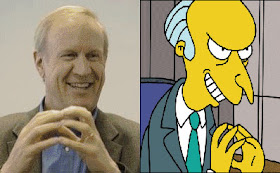How are charter schools influencing LAUSD labor negotiations? – Daily News
How are charter schools influencing LAUSD labor negotiations?
If teachers go on strike this school year, it would be the first amid a backdrop of a growing charter school movement that has not only drawn students from the Los Angeles Unified School District, but has also taken teachers with them.
The last time Los Angeles teachers went on strike was in 1989. The California Charter School Act was signed into law in 1992 and charter school growth in Los Angeles particularly exploded within the last two decades.
Los Angeles is now home to the largest number of charter schools in the nation. Charter schools are typically non-union.
“Our members see very clearly the privatization agenda of those who are leading and funding the charter school movement in California,” union president Alex Caputo-Pearl said in an interview.
Contract negotiations between United Teachers Los Angeles, the union that represents teachers, nurses, librarians and counselors, and the district reached a stalemate this summer. And the two sides did not reach an agreement through mediation, district officials said Friday.
“By UTLA’s own admission, the only reason UTLA participated in Mediation was to ensure that it could move quickly to a strike,” district General Counsel David Holmquist said in a statement.
The next step is fact-finding before a strike can legally be called. Caputo-Pearl estimated a fact-finding report wouldn’t produced until late November or early December. This summer, teachers overwhelmingly authorized its union leadership to call for a strike. If there is a strike, it likely won’t be for several weeks.
At the bargaining table, there are a number of proposals regarding charter schools that the union has put forth.
“The district has not been willing to come back with a counter proposals on them, which is part of the reason we’re in mediation,” Caputo-Pearl said Thursday.
Teacher union membership has declined over the past decade. In 2008, the number of teachers, nurses, librarians and counselors in L.A. Unified totaled 43,000. That figure has fallen to 33,000 today. This is partly due to layoffs that occured after the 2008 recession. Also, a number of teachers left the district for charter schools.
UTLA does represent about 1,000 charter school teachers. Teachers at district schools that have converted into charter schools, known as affiliated charters, are part of UTLA as are some independent charter schools. Caputo-Pearl makes a distinction between these schools when he Continue reading; How are charter schools influencing LAUSD labor negotiations? – Daily News













